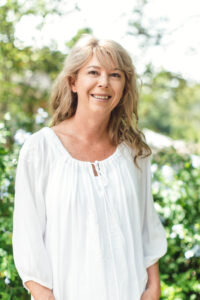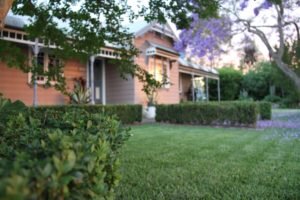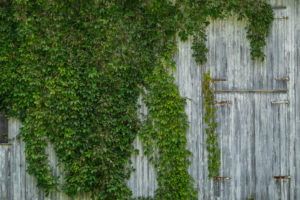A Parents Perspective - Consultant Jo Aquilina
 As parents we all want the very best for our kids. We want them to be happy, healthy and productive.As a working mother of four energetic children, I have always tried to provide the most stimulating, healthy environment I can that caters to their individual needs and interests. Creating that kind of an environment requires constant energy and creativity, especially when your children have additional medical needs.My eldest, a girl now aged 21, suffers from Post Traumatic Stress Disorder, whilst my second eldest, a boy currently 18 years of age, has high-functioning autism spectrum disorder and was diagnosed from quite a young age. Likewise, my younger boys have special developmental needs, my son aged 14 is challenged daily with Attention Deficit Hyperactivity Disorder, and my youngest, aged 11, has recently been diagnosed with a language disorder. As parents of these incredible children, my husband and I have certainly had our hands full!Each of our kids are loving, enthusiastic and bright but as you can see, they all have physical and mental challenges and difficulties they struggle to handle every day. I won’t pretend raising our children has been an easy ride—in fact, it has been outright awful at times—but like all parents, we just keep getting back on the horse. Unfortunately, one of the hardest hurdles we have faced is the reactions of others to the conditions of our children. When a medical condition or disability is not immediately physically obvious, many people underestimate or dismiss the effects of the condition, or worse, they believe challenging behaviour stems purely from a desire to act out or bad parenting. The experience has been extremely isolating and exhausting, frustrating and confusing as we have struggled to find ways to help our children to gain the skills and strategies they need to manage their symptoms and thrive.
As parents we all want the very best for our kids. We want them to be happy, healthy and productive.As a working mother of four energetic children, I have always tried to provide the most stimulating, healthy environment I can that caters to their individual needs and interests. Creating that kind of an environment requires constant energy and creativity, especially when your children have additional medical needs.My eldest, a girl now aged 21, suffers from Post Traumatic Stress Disorder, whilst my second eldest, a boy currently 18 years of age, has high-functioning autism spectrum disorder and was diagnosed from quite a young age. Likewise, my younger boys have special developmental needs, my son aged 14 is challenged daily with Attention Deficit Hyperactivity Disorder, and my youngest, aged 11, has recently been diagnosed with a language disorder. As parents of these incredible children, my husband and I have certainly had our hands full!Each of our kids are loving, enthusiastic and bright but as you can see, they all have physical and mental challenges and difficulties they struggle to handle every day. I won’t pretend raising our children has been an easy ride—in fact, it has been outright awful at times—but like all parents, we just keep getting back on the horse. Unfortunately, one of the hardest hurdles we have faced is the reactions of others to the conditions of our children. When a medical condition or disability is not immediately physically obvious, many people underestimate or dismiss the effects of the condition, or worse, they believe challenging behaviour stems purely from a desire to act out or bad parenting. The experience has been extremely isolating and exhausting, frustrating and confusing as we have struggled to find ways to help our children to gain the skills and strategies they need to manage their symptoms and thrive.
'In looking back, our greatest success has come from
taking a scientific holistic approach'.
The main thing that has kept us going is trying every opportunity or help that has been offered. We simply have refused to give up. Through persistence we have managed to find some outstanding professionals to help and support our family through the journey but it has been a matter of finding the right fit for our kids. There is nothing we haven’t tried: paediatricians, psychologists, psychiatrists, occupational therapists, reiki, kinesiology, iridology, as well as specialised programs… We have found limited success with some of these strategies but we still felt more was needed.In looking back, our greatest success has come from taking a scientific approach. Each of our children are quite unique in their interests, hobbies and health needs but, as a family, we have one thing in common, a love of the outdoors and interacting with nature. Early in our family life, my husband and I made the decision that, for the benefit of the whole family, we would move out of the city onto a five acre property where we and our children could all enjoy the space and the freedom to be physically active and interact with nature as part of our daily lives. I cannot stress more strongly what a wonderful boon that decision has been for each of us. We have been extremely fortunate that we were able to find a rural setting and community that has been welcoming and accepting of our family.Our garden and the wider property has helped our children to grow, thrive and gain the life skills they need to cope with the burdens of their various conditions. As is the case with all kids, they are individuals and interact with their natural space differently but they each find and take what they need from their surroundings.When the kids were little, the open space allowed them to exert their energies in a healthy and productive way, releasing the tensions of the day. They had space for creative free play, they learned about nature, and we also ensured they had wonderful play equipment, mixed with loose parts (old plastic piping, pieces of bamboo, old bricks and the like) for them to vary and manipulate their play space. We gave them time and space outdoors to negotiate games with each other and they learned to socialise, cooperate and compromise as they played cricket or soccer. They learned about cattle and poultry from our neighbours, we have dogs, and my husband is an Aviculturist with a life long hobby of breeding birds, that our kids just love. We made sure there were swings, climbing frames, cubbies, sandpits and old farming equipment, such as wagons and tools, that fuelled their imaginations and helped them to develop their gross and fine motor skills, as well as their proprioceptive and vestibular systems. Providing this equipment was inexpensive as we used what we had to hand, all it needed was a little thought and elbow grease.
Early in our family life, my husband and I made the decision that, for the benefit of the whole family, we would move out of the city onto a five acre property where we and our children could all enjoy the space and the freedom to be physically active and interact with nature as part of our daily lives. I cannot stress more strongly what a wonderful boon that decision has been for each of us. We have been extremely fortunate that we were able to find a rural setting and community that has been welcoming and accepting of our family.Our garden and the wider property has helped our children to grow, thrive and gain the life skills they need to cope with the burdens of their various conditions. As is the case with all kids, they are individuals and interact with their natural space differently but they each find and take what they need from their surroundings.When the kids were little, the open space allowed them to exert their energies in a healthy and productive way, releasing the tensions of the day. They had space for creative free play, they learned about nature, and we also ensured they had wonderful play equipment, mixed with loose parts (old plastic piping, pieces of bamboo, old bricks and the like) for them to vary and manipulate their play space. We gave them time and space outdoors to negotiate games with each other and they learned to socialise, cooperate and compromise as they played cricket or soccer. They learned about cattle and poultry from our neighbours, we have dogs, and my husband is an Aviculturist with a life long hobby of breeding birds, that our kids just love. We made sure there were swings, climbing frames, cubbies, sandpits and old farming equipment, such as wagons and tools, that fuelled their imaginations and helped them to develop their gross and fine motor skills, as well as their proprioceptive and vestibular systems. Providing this equipment was inexpensive as we used what we had to hand, all it needed was a little thought and elbow grease.
'Our garden and the wider property has helped our children to
grow, thrive and gain the life skills they need to
cope with the burdens of their various conditions'.
As our kids continue to grow, the way they use the garden and property has evolved but they continue to benefit from the regular interaction with nature. We still make the most of our fantastic outdoor entertaining area that we share as a family with our friends and neighbours. They also still enjoy reading outdoors or taking breaks from mentally demanding tasks to refresh their powers of concentration. On top of this, they each use the garden individually in other ways that suit their needs and personalities. Our daughter is today very focused on a high-powered career but regularly uses the garden to help her with relaxation and a release of her physical tensions. She is very into fitness, water-skiing and touch football and uses the garden for training. She very much enjoys the work-life balance and her sense of wellbeing is soaring. The symptoms of her PTSD are lessened when she is able to have an outdoor space to release anger, frustration, and relieve her depression.Our eldest son is pursuing a career in the fashion industry, as well as a keen hobby in photography. Whilst his use of the natural space is more passive, he still benefits greatly from the soothing effects of being in nature. Early in his life, the garden was a sensory wonderland that helped him to learn the very important skills of sensory integration. He suffers from acute anxiety at times and the relaxation time is vital as a way of taking breaks from sensory over-stimulation. His love of nature leads him to revel in noticing the undemanding but stimulating beauties to be found in the garden and he is also drawn to the soothing effects of water. He spends much of his free time visiting waterfalls and beaches and surrounds himself with photographs of these places which help him to relax when he works on his indoor pursuits.Both of our younger sons have been enthusiastic active gardeners from a very young age. They love nothing more than getting their hands dirty planting, weeding, making compost and otherwise tending their plants. They find gardening to be both stimulating and relaxing as they produce food for the family and help create a beautiful environment for us all. They are learning a wonderful skill for life and are also learning about nutrition and medicinal uses for plants. It is plain to see that already they have a love of interacting with nature that will last them all of their lives. They also love motocross and spend a great deal of time in our paddock preparing to excel in their next competition.
Our daughter is today very focused on a high-powered career but regularly uses the garden to help her with relaxation and a release of her physical tensions. She is very into fitness, water-skiing and touch football and uses the garden for training. She very much enjoys the work-life balance and her sense of wellbeing is soaring. The symptoms of her PTSD are lessened when she is able to have an outdoor space to release anger, frustration, and relieve her depression.Our eldest son is pursuing a career in the fashion industry, as well as a keen hobby in photography. Whilst his use of the natural space is more passive, he still benefits greatly from the soothing effects of being in nature. Early in his life, the garden was a sensory wonderland that helped him to learn the very important skills of sensory integration. He suffers from acute anxiety at times and the relaxation time is vital as a way of taking breaks from sensory over-stimulation. His love of nature leads him to revel in noticing the undemanding but stimulating beauties to be found in the garden and he is also drawn to the soothing effects of water. He spends much of his free time visiting waterfalls and beaches and surrounds himself with photographs of these places which help him to relax when he works on his indoor pursuits.Both of our younger sons have been enthusiastic active gardeners from a very young age. They love nothing more than getting their hands dirty planting, weeding, making compost and otherwise tending their plants. They find gardening to be both stimulating and relaxing as they produce food for the family and help create a beautiful environment for us all. They are learning a wonderful skill for life and are also learning about nutrition and medicinal uses for plants. It is plain to see that already they have a love of interacting with nature that will last them all of their lives. They also love motocross and spend a great deal of time in our paddock preparing to excel in their next competition.
'I want to draw attention to the great work being done in the
area of therapeutic gardens and revolutionise the way medical
and physical conditions are treated by our medical system'.
Whilst it is clear to us that we have been lucky to be able to provide our kids with an outdoor environment that isn’t available to everyone, the key to our relative success so far has been to take a an evidence-based holistic approach, coupling the benefits and strategies provided by occupational therapists, special school educators and the like with the advantages to be found outdoors interacting with nature.This approach is something everyone can pursue, no matter where they live or the facilities they have at home. Your kids, like mine, can take walks, play on equipment and climb trees. They can swim, run and actively garden. Local and national parks, ovals, balconies and courtyards can all provide the outdoor stimulation that therapeutic gardens offer, especially when you think outside the square. Container gardening can be a great way to help kids relax and learn about nature, the seasons and growing their own food for a healthy diet. You really don’t need a large space or a lot of money to gain the physical and mental health benefits for your children of regular interaction with nature. We have seen firsthand the sensational benefits interaction with nature and the outdoors has had on our kids. Of course, it isn’t a cure-all. There really isn’t anything to cure. Our kids are all wonderful individuals who just needed help and strategies for managing their conditions and gaining the skills and the relaxation they need to lead the lives they want to live. Even better, interacting with nature is something we can all benefit from, not just those of us with particular medical or developmental conditions. We all need time and space to relax, reconnect with the natural world and devote time and energy to our sense of wellbeing. As result of my experience with my kids, I feel passionately that inclusive and accessible therapeutic garden spaces are the right of every individual. The mental and physical health benefits have been proven time and again by scientific research and, not only that, I have seen them with my own eyes. I want to draw attention to the great work being done in the area of therapeutic gardens and revolutionise the way medical and physical conditions are treated in our medical system.I want to be part of a change that sees modern medicine take a holistic approach, where therapies and western medicine work hand in hand with increased access to regular interaction with nature. I am advocating for appropriate therapeutic gardens to become permanent fixtures in public community spaces, medical institutions and facilities, schools and private gardens. It is this goal that has led me to resign my previous role as a CEO so I can devote myself to building this information hub, as well as beginning my business offering consultation and facilitation for the design and implementation of these essential gardens.So, let the revolution begin! There’s a whole wide natural world out there for you to explore, and you can start in your very own back garden! In the words of Paul Kelly and Kev Carmody, ‘From little things, big things grow.’
As result of my experience with my kids, I feel passionately that inclusive and accessible therapeutic garden spaces are the right of every individual. The mental and physical health benefits have been proven time and again by scientific research and, not only that, I have seen them with my own eyes. I want to draw attention to the great work being done in the area of therapeutic gardens and revolutionise the way medical and physical conditions are treated in our medical system.I want to be part of a change that sees modern medicine take a holistic approach, where therapies and western medicine work hand in hand with increased access to regular interaction with nature. I am advocating for appropriate therapeutic gardens to become permanent fixtures in public community spaces, medical institutions and facilities, schools and private gardens. It is this goal that has led me to resign my previous role as a CEO so I can devote myself to building this information hub, as well as beginning my business offering consultation and facilitation for the design and implementation of these essential gardens.So, let the revolution begin! There’s a whole wide natural world out there for you to explore, and you can start in your very own back garden! In the words of Paul Kelly and Kev Carmody, ‘From little things, big things grow.’
